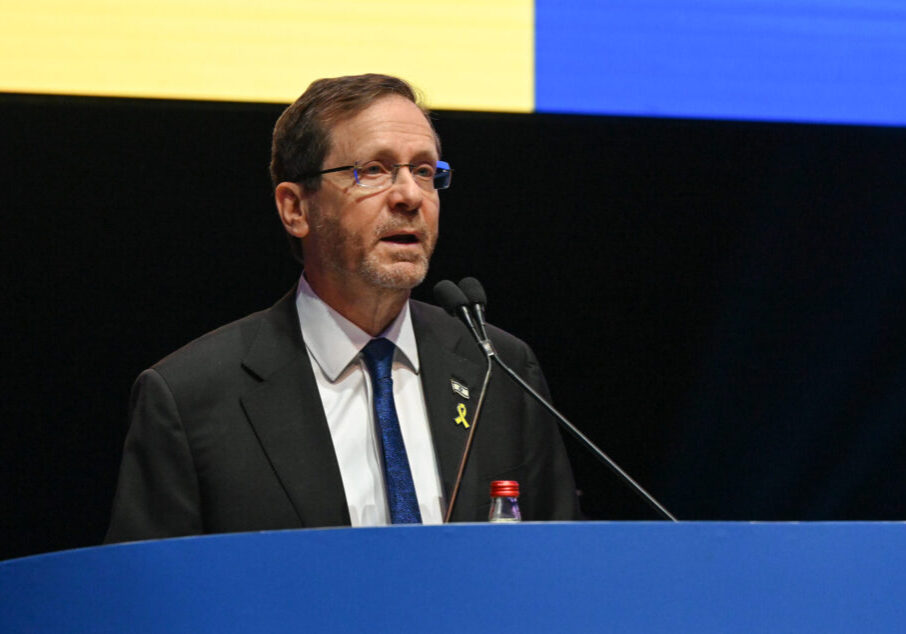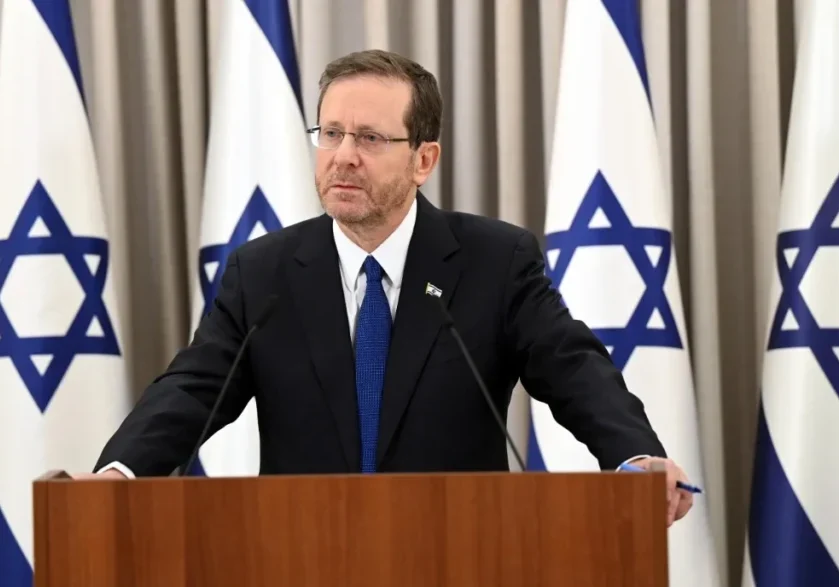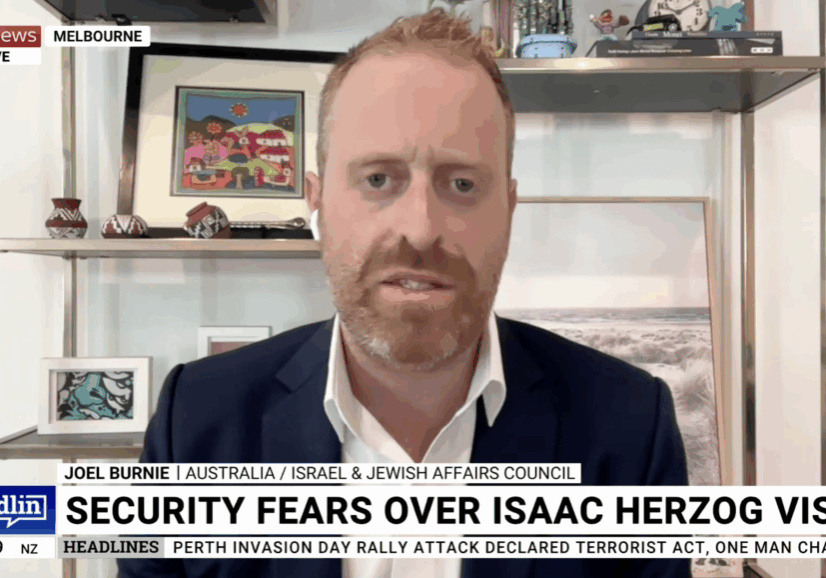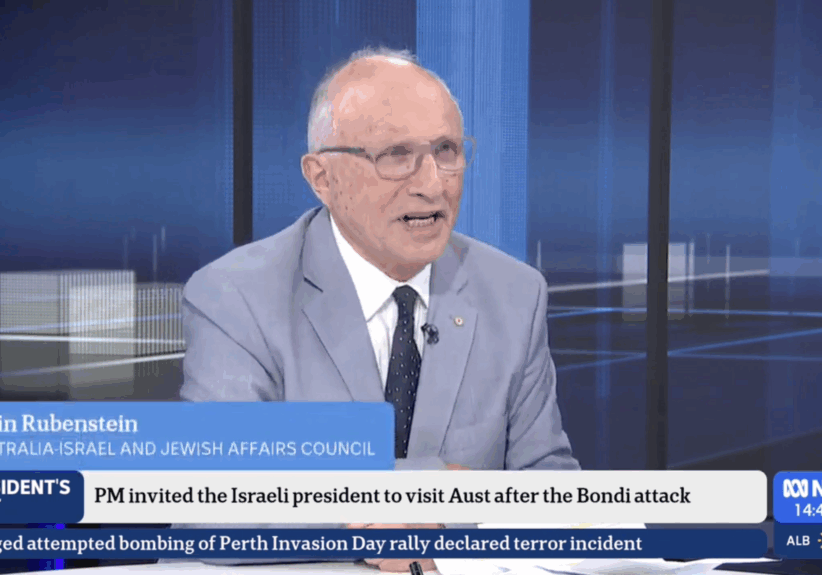Australia/Israel Review
Klein Halevi: Gaza and the Israeli-Palestinian Tragedy
Jul 28, 2014 | Sharyn Mittelman

Sharyn Mittelman
Renowned Israeli author and commentator Yossi Klein Halevi spoke with AIJAC on July 23 to discuss Israel’s mounting challenges as it continues its operation against Hamas to stop rocket attacks, and grapples with a failing peace process.
Discussing Israel’s operation in Gaza, Klein Halevi said there are “obvious” and “unstated” goals. The obvious goal for Israel is to limit Hamas’ capacity, but the less obvious goal is to reinforce Israeli deterrence. Klein Halevi noted that since the Second Intifada the demarcation between the home front and the battle ground has disappeared as the Israeli population has become the main target of attack – a position once considered unthinkable. Therefore, Israel is sending a message not only to Hamas but to any of Israel’s enemies, “If Israel’s neighbours get used to the notion that… our population centres can be hit with relative impunity, and Israel can’t stop it, then we really are in a new phase of our security dilemmas.”
Klein Halevi said that Gaza represents “the tragedy of the Palestinian people on several levels.” Reflecting on the missed opportunity when Israel withdrew from Gaza in 2005, he said, “For the first time in the history of the conflict, there was one part of Palestine that could have been sovereign. That could have been a model for what happens when Israel actually withdraws. My thinking and thinking among many Israelis in 2005, was let’s keep the momentum going… When [Gaza] literally exploded in our faces we learnt that we can’t do it in the West Bank. People forget that Ehud Olmert… was elected in 2006 to continue unilateral withdrawal from the West Bank… Now we know it would have ended in disaster.” He also noted that Israel did not impose a blockade on Gaza until after Hamas began firing rockets on Israel.
Regarding the high number of Palestinian casualties in the conflict, Klein Halevi says that primary responsibility for the deaths lies with Hamas. He notes that tragically it is in Hamas’ interest to have high Palestinian casualties because it “activates world opinion” and “puts pressure on Israel.” Klein Halevi said, “Hamas’ main weapon against Israel is to manipulate world opinion, to deflect the criticism of Hamas towards Israel, [to convince them] not to demand of Hamas leaders, ‘why are you subjecting your people to this?’… when everyone knows that if the rockets stopped flying into Israel, that is the end of the war. The war ends the moment the rockets stop.”
Klein Halevi expects that Israel will conduct a commission of inquiry in the aftermath of this conflict that will focus on the revelation of the labyrinth of ‘terror tunnels’ that reached from the Gaza Strip into Israel. He asked, “Why is it, that we had no idea of the extent of the tunnels, and that we had no idea that when the government was warning us of the threats facing the Israeli civilian population, it focused on the rockets?” Adding, “We came upon this threat… by accident, because an Israeli military patrol intercepted… sixteen Hamas men who were on their way to takeover a border kibbutz, which could have ended either in a hostage situation or a massacre. That is the moment that [was] a turning point for the Israeli public in this war.”
According to Klein Halevi, most Israelis currently support Israel’s military operation in Gaza, and both the left and right have lauded Prime Minister Benjamin Netanyahu’s restraint. He said, “The fact [is] that he waited a full week while Israel was absorbing rocket attacks before retaliating… he accepted the Egyptian ceasefire and Hamas rejected it… [he] has pushed back the far right in Israel, including the far right in his government, people like Naftali Bennett who are urging an all out invasion and for Israel to use its massive military power to put an immediate end to the rockets – which Israel could do in two hours if that was the decision. For all those reasons, Netanyahu has won an impressive, virtual wall-to-wall consensus, which again almost never happens in Israel – especially at a time when so much of the international community is condemning Israel for its supposedly reckless aggression.”
However, Klein Halevi argued that the ideological divides that had split Israelis between left and right in the 1980s/1990s are no longer as relevant today, as the majority of Israelis, are “neither left nor right, but a combination of both. Which is another way of saying that most Israelis today are centre.” Explaining the ‘Israeli centre’, he said, “centre in the sense of very hawkish on security, and willing at the same time in principle, to make virtually any territorial concession, if the public is convinced that it would end the conflict. And that’s a big if.” Klein Halevi believes that while the Israeli centre is willing to make concessions, today most Israelis believe that no amount of Israeli concessions at this point will actually achieve peace.
Regarding the stalled peace process, Klein Halevi claims it failed for three reasons.
Firstly, he points to the Palestinian leadership’s refusal to depart from the claim to a ‘right of return’ for refugees and their descendants, “The Palestinian demand for refugee return, not to a future state of Palestine but to Israel, is a deal breaker for any Israeli government – left, right or centre.”
Secondly, Klein Halevi says that while Israelis would accept re-dividing Jerusalem for the sake of peace, “in practice today, with Hamas in Gaza and threatening to take over a future state in the West Bank, a majority of Israelis, will not risk the nightmare possibility of waking up one morning and finding that Hamas is sitting in east Jerusalem. That is inconceivable.”
And a third reason, is the reality that the Middle East “is disintegrating”. Not only have Syria, Lebanon, Iraq and Libya fallen apart, with other states showing signs of following suit, but Klein Halevi says that the international community cannot lose sight of Iran’s nuclear program and must prevent it from becoming the next North Korea.
Klein Halevi also had a few words of advice to the international community about its general response to the Israeli-Palestinian conflict: “The more that the international community puts the pressure not on Hamas leaders and gives Hamas leaders a pass, and puts the pressure on Israel, that will only prolong the suffering on both sides. And there really needs to come a point, where the international community has to stop treating the Palestinian people as children, stop patronising the Palestinian people.”
For Klein Halevi, it was the international community’s weak response to Yasser Arafat’s rejection of the peace deal proposed at Camp David in 2000, that epitomised its incorrect and counterproductive approach to the conflict. He said, that while that does not mean Israel should be given a free pass, at the same time there must be “some perspective about what this conflict actually is about and who is ultimately responsible not just for Palestinian suffering but for the absence of a Palestinian state.”
Despite the challenges that Israel confronts, Klein Halevi remains sceptical but cautiously optimistic that a future peace deal with the Palestinians is possible, if conditions improve. He noted that no one expected the transformation wrought by Anwar Sadat’s trip to Jerusalem in 1977, and argues we should remain open to positive surprises as well as negative ones in the Middle East.
Yossi Klein Halevi is a Fellow at the Shalom Hartman Institute in Jerusalem and author of a number of books, including the recent prize-winning best-seller Like Dreamers: The Story of the Israeli Paratroopers who Reunited Jerusalem and Divided a Nation (HarperCollins, 2013). He is in Australia as a guest of the Shalom Institute and also was made available to AIJAC courtesy of the Australian Centre for Jewish Civilisation at Monash University.
Tags: Israel






